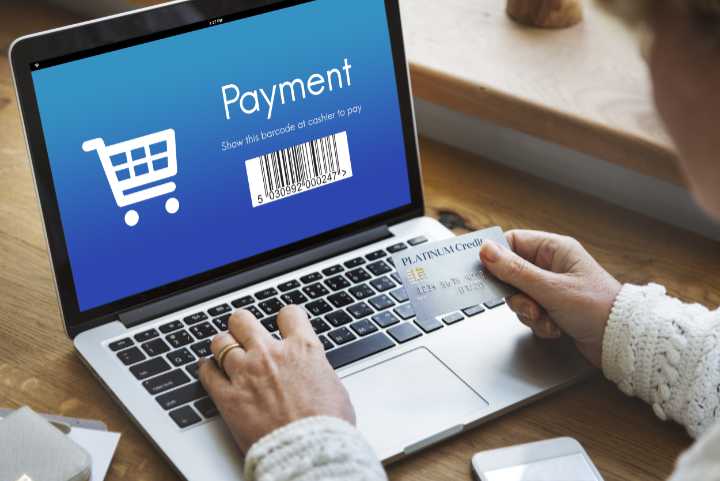Online shopping is gradually becoming an increasingly popular and convenient way for Nigerians to access various products and services. However, e-commerce has also brought a growing threat of online shopping scams, which can have devastating consequences for unsuspecting consumers.
One of Nigeria’s most prevalent forms of online fraud is “phishing,” where perpetrators attempt to acquire individuals’ banking details through fraudulent websites or emails. Scams often target job seekers, who may be directed to unsecured pages that request sensitive information.
Another common scam involves creating fake online stores that offer products at heavily discounted prices, only to disappear with the customer’s money before the items are delivered. To avoid these scams, Nigerian consumers must exercise caution and vigilance when online shopping.
One key strategy is to research the legitimacy of an online store or website before purchasing by checking for a physical address, customer reviews, and any available contact information. Additionally, it is essential to be wary of any personal or financial information requests and only provide such details through a secure, verified channel.
While the Nigerian government has enacted various laws and regulations to combat online fraud, such as the Advance Fee Fraud and Other Fraud Related Offences Decree and the Economic and Financial Crime Commission Act 2004, the effectiveness of these measures has been called into question.
Ultimately, the responsibility for avoiding online shopping scams in Nigeria lies with the individual consumer. Nigerians can confidently and securely navigate e-commerce by staying informed, exercising caution, and trusting their instincts.
Understanding Online Shopping Scams

What Are Online Shopping Scams?
Online shopping scams are fraudulent activities that involve purchasing goods or services online. Typically, these scams involve deceiving consumers into providing personal or financial information or paying for goods or services that are never delivered. Online shopping scams come in many forms, from phishing schemes to fake websites and fraudulent sellers.
How Online Scams Operate in Nigeria
Nigeria has experienced significant e-commerce growth, estimated at USD 8.53 billion in 2024, with an expected growth of 14.92 billion by 2029. However, this growth has also brought about an increase in online shopping scams.
Cybercriminals in Nigeria often use specialised software to hack into people’s accounts and acquire their banking details, which they use to make unauthorised purchases and engage in other criminal activities.
Common Types of Online Shopping Scams
· One common type of online shopping scam is phishing, where fraudulent websites or emails trick consumers into providing personal and financial information.
· Another common scam involves fake sellers who trap consumers into paying for products that are never delivered or are of significantly lower quality than advertised.
Protecting Consumers from Online Shopping Scams
To protect consumers from online shopping scams, it is essential to have a robust legal and compliance framework in place. Online auction websites should take steps to verify the identities of buyers and sellers and provide transparent information about their policies and procedures.
Consumers should also be educated about the risks of online shopping and how to identify and avoid scams, such as by verifying the legitimacy of a website or seller before purchasing.
Recognising Red Flags of Online Shopping Scams

While e-commerce has undoubtedly transformed how we shop, it has also given rise to a concerning trend – the proliferation of fraudulent activities and scams targeting unsuspecting online shoppers. These online scams come in various forms, from phishing attacks and fake websites to selling counterfeit goods, significantly threatening consumer trust and financial security.
One of the most common forms of online fraud is phishing, where scammers use deceptive emails or websites to lure victims into divulging sensitive personal information, such as login credentials or financial data. These attacks often mimic the appearance of legitimate businesses, making it challenging for consumers to distinguish them from authentic sources.
To combat this threat, shoppers must be vigilant and knowledgeable to identify the warning signs of phishing, such as poor grammar, suspicious sender addresses, and unsolicited requests for personal information.
In addition to phishing, e-commerce has also enabled the proliferation of fake websites designed to deceive consumers. These websites may offer products at low prices, need more contact information or physical addresses, and use generic stock images instead of authentic product photos.
Shoppers should be wary of such red flags and take steps to verify the legitimacy of a website before making a purchase, such as checking reviews, researching the seller, and ensuring the website uses secure encryption.
Another significant concern in online shopping is the sale of counterfeit goods. These fraudulent products can be challenging to spot, as they may closely resemble the genuine article regarding appearance and packaging.
To forestall this scam, consumers should be cautious of low prices, unfamiliar sellers, and products that seem too good to be true.
Recognising and avoiding online shopping scams requires a multifaceted approach combining consumer education, technological solutions, and robust regulatory frameworks.
By staying informed, practising due diligence, and remaining vigilant, shoppers can protect themselves from the growing threats of fraudulent activities in the digital marketplace.
Safe Practices for Secure Online Shopping
With the rise in e-commerce, the need to ensure the legitimacy and security of online stores has become increasingly important. As a significant portion of business transactions now occur online, consumers must be able to verify the trustworthiness of a website and the vendors they engage with.
One of the primary concerns for consumers when shopping online is the perceived risk associated with providing sensitive financial information, such as credit card details.
Consumers may need more clarification about the security of transmitting this information over the internet and the inability to inspect and return products physically.
To address these concerns, reputable online vendors have developed and implemented reliable encryption and authentication methods.
Verifying the legitimacy of an online store involves scrutinising various aspects of the website, such as the presence of a physical business address, customer reviews, and precise shipping, returns, and privacy policies.
Consumers should also be wary of websites that seem too good to be true, offering significantly lower prices than the industry average, as these may be a front for fraudulent activities.
Reviewing previous customers’ online transactions provides valuable insights into a vendor’s reliability and customer service, helping consumers make informed decisions. However, it is essential to be aware of the potential for fake or biased reviews and to cross-reference information from multiple reliable sources.
Ultimately, the key to a secure and satisfactory online shopping experience lies in the consumer’s ability to thoroughly research and verify the online vendor’s legitimacy. By carefully evaluating a website’s credibility and policies, consumers can minimise the risks associated with e-commerce and enjoy the benefits of this convenient shopping method.
Secure Payment Methods and Techniques

One of the critical payment methods used in Nigerian e-commerce is debit and credit cards. However, a serious concern around the security of online credit card transactions remains a significant barrier to broader adoption, particularly in countries like Nigeria, where credit card usage is lower compared to more developed markets.
To address these security concerns, implementing two-factor authentication (2FA) has become an increasingly popular solution. 2FA adds a layer of security for online transactions, requiring users to provide an extra layer for authentication purposes, such as a one-time code sent to their mobile devices and their username and password.
Adopting 2FA has significantly reduced the risk of fraud and unauthorised access to sensitive financial information.
In addition to 2FA, other measures to improve the security of online payments in Nigeria include using encrypted payment gateways, implementing robust fraud detection and prevention systems, and educating consumers on best practices for protecting their payment information online.
As the Nigerian e-commerce market grows, a holistic approach to payment security involving technological solutions and consumer education will be crucial in building trust and driving further adoption of online shopping in the country.
Protecting Personal Information and Online Accounts
In the digital age, the security of personal information and online accounts has become a critical concern, especially in developing countries like Nigeria. The widespread use of the Internet for various activities, including financial transactions, job applications, and communication, has made individuals vulnerable to cyber threats such as phishing, identity theft, and unauthorised access to sensitive data.
One of the most effective ways to mitigate these risks is the adoption of HTTPS (Hypertext Transfer Protocol Secure) and other secure connection protocols. HTTPS, or Hypertext Transfer Protocol Secure, is a secure version of the traditional HTTP protocol used to transmit data over the Internet. The encryption of communication between the user’s device and the web server, HTTPS, ensures that sensitive personal information, such as login credentials, financial details, and personal data, is protected from interception by third parties.
The importance of HTTPS and secure connections in protecting Nigeria’s personal information and online accounts cannot be overstated. Due to the proliferation of cybercrime in the country, with fraudsters targeting individuals and businesses through various means, including phishing and hacking, the use of HTTPS is crucial to safeguard against these threats.
Moreover, as more government agencies, educational institutions, and businesses in Nigeria embrace digital technologies and online platforms, the need for resilient security measures becomes even more pressing.
Creating complex and secure passwords is essential to protect personal information and online accounts. A strong password is long, complex, and unique, making it harder for cyber-attackers to guess or crack. Individuals should also be cautious of phishing attempts, where attackers try to trick them into revealing their login credentials or other sensitive information.
The importance of HTTPS and secure connections in protecting Nigeria’s personal information and online accounts cannot be overstated. By adopting these security measures and practising good cyber hygiene, individuals can significantly reduce the risk of identity theft, personal information theft, and other cyber-related attacks.
Cybersecurity Awareness and Scam Prevention Tips
Nigeria has unfortunately witnessed a concerning rise in cybercrime and identity theft (Online scams, often referred to as “419” fraud, have become increasingly prevalent, targeting both businesses and individuals. These scams usually take various forms, from phishing emails and fake job postings to hacking of personal accounts and theft of sensitive information.
However, there are steps that Nigerian internet users can take to protect themselves and their information. Developing strong, unique passwords and enabling two-factor authentication on online accounts is crucial.
Additionally, being wary of unsolicited offers or requests for personal data and verifying the legitimacy of websites and companies before sharing information or making purchases can help mitigate the risks of identity theft and financial fraud.
Beyond individual security practices, building digital literacy and cybersecurity awareness among the broader population is vital in combating the rise of online crime in Nigeria. Educational campaigns, mainly targeting younger demographics who may be more vulnerable to scams, can empower Nigerians to recognise and report suspicious activities, ultimately strengthening the country’s defence against these evolving threats.
As e-commerce and digital services continue to expand in Nigeria, maintaining robust cybersecurity practices and promoting digital literacy will be essential to protecting personal information and safeguarding online accounts. Nigerian internet users can play a vital role in creating a safer, reliable online landscape by staying vigilant, adopting secure habits, and reporting scams.
Final Thoughts
Scamwatch Nigeria provides valuable tips to help you avoid falling victim to online shopping scams in Nigeria. It is important to be cautious when shopping online, as scammers will often set up fake shopping sites pretending to be legitimate online sellers.
These scammers may ask for your online account details or request that you send money before receiving your purchase. If you are scammed online, it can be difficult to get your money back, especially if you don’t know or trust the seller. Many online scammers use the latest technology to deceive consumers, so it is essential to be diligent and cautious when making online purchases.
One important rule to remember is to never send money to anyone you don’t know or trust online. By following this simple guideline, you can avoid falling victim to an online scam. In the unfortunate event that you get scammed,
it is important to report it to Scamwatch Nigeria so that others can be made aware of the type of scam. While it can be challenging to get your money back after being scammed, there are steps you can take to try and get your money back and prevent future scams.



